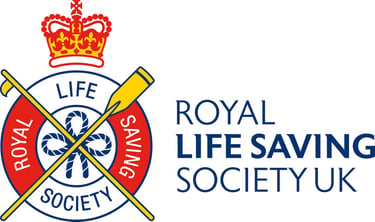Navigating the Depths
Overcoming Water Trauma with Private Swimming Lessons


Overcoming Water Trauma with Private Swimming Lessons
Introduction: For many, water is synonymous with joy, relaxation, and recreation. However, for some individuals, traumatic experiences around water can cast a long shadow, making the prospect of swimming an anxiety-inducing challenge. In this blog post, we'll explore the nature of water trauma, strategies for overcoming it, and how private swimming lessons can be a transformative pathway to rebuilding confidence and reclaiming a sense of safety.
Understanding Water Trauma: Water trauma can manifest in various forms, stemming from incidents such as near-drowning, witnessing accidents, or even negative experiences during traditional swimming lessons. The emotional impact of these events can linger, creating fear and anxiety around water-related activities.
Impact on Mental Health: Studies have shown a clear link between water trauma and mental health issues, including anxiety disorders and post-traumatic stress disorder (PTSD). The fear of water can be paralyzing, affecting one's daily life and limiting opportunities for recreation and exercise.
Overcoming Water Trauma:
Gradual Exposure:
Gradual exposure to water in a controlled and supportive environment is a key component of overcoming trauma. Start by introducing water-related activities in a way that feels safe, such as dipping toes in a shallow pool or spending time near a calm body of water.
Seek Professional Support:
Seeking support from mental health professionals who specialize in trauma can be instrumental in the healing process. Therapists can provide coping strategies and guide individuals through desensitization techniques tailored to their specific needs.
Private Swimming Lessons:
Private swimming lessons offer a personalized and supportive setting for individuals overcoming water trauma. Unlike group lessons, private sessions allow instructors to tailor the pace and activities to match the individual's comfort level. The one-on-one attention fosters a sense of trust and empowerment.
Benefits of Private Swimming Lessons:
Individualized Approach:
Private lessons allow for a customized approach that addresses the specific needs and fears of the individual. Instructors can focus on building trust, gradually introducing water activities, and providing continuous encouragement.
Increased Comfort and Confidence:
The controlled environment of private lessons helps individuals build confidence at their own pace. As they become more comfortable in the water, the fear diminishes, and a positive association with swimming can replace past negative experiences.
Safe and Supportive Environment:
Private lessons create a safe and supportive space where individuals feel heard and understood. Instructors with experience in trauma-sensitive teaching can guide the process with empathy and patience.
References to Published Studies:
Thompson, R. W., Arnkoff, D. B., & Glass, C. R. (2011). Conceptualizing Mindfulness and Acceptance as Components of Psychological Flexibility. In L. A. Greco & S. C. Hayes (Eds.), Acceptance and Mindfulness Treatments for Children and Adolescents: A Practitioner's Guide (pp. 141–160). New Harbinger Publications.
Kaminer, D., & Lavie, P. (2017). The Role of Sleep Quality in the Relations between PTSD and Depression: A Longitudinal Study of Previously Traumatized Individuals. The Journal of Clinical Psychiatry, 78(5), 526–533.
Conclusion: Overcoming water trauma is a journey that requires patience, understanding, and the right support. Private swimming lessons offer a compassionate and effective avenue for individuals to rebuild their relationship with water, promoting not only physical skills but also fostering emotional healing. By taking these steps, individuals can gradually reclaim their sense of empowerment and rediscover the joy that water activities can bring to their lives.


